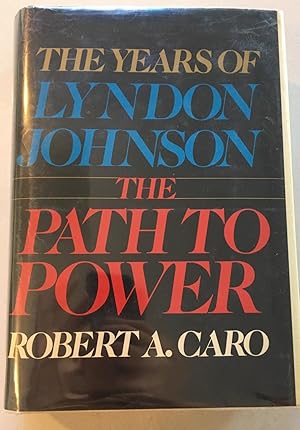

So it’s disappointing that Caro largely ignores how Johnson abused his power to prey upon his female subordinates.

Caro notes that he could not tell Moses’s story without also telling their stories: “To really show political power, you had to show the effect of power on the powerless, and show it fully enough so the reader could feel it.” In an essay on Robert Moses, he describes his moving interviews with Bronx residents whose lives were nearly destroyed when the urban planner decided to condemn huge chunks of their farms.

They also note that he regularly groped female staffers and otherwise harassed them, telling them how he wanted them to dress or even how much lipstick to wear.Ĭaro is often acutely sensitive to how his subjects have sometimes abused power to take advantage of others. However, as a few other biographers - say, Robert Dallek and Randall Woods - have pointed out, Johnson also regularly pursued sexual relationships with secretaries while serving in Congress, as vice president, and president. Of his decision to write in detail about LBJ’s long romance with Alice Glass, the wife of a wealthy publisher, Caro emphasizes that she “was in truth not just another bimbo.”

because, although these ‘affairs’ were numerous, none of them seemed to have any significance to him personally or to have any connection with his political or governmental activities.” In the first four LBJ books, Caro covers just two of these affairs and the reasoning is curious. “I had been intending to deal in only a few lines with the many women with whom Lyndon Johnson had had sex,” he writes. Given Caro’s thoroughness and his willingness to explore his subjects’ flaws, his approach to covering LBJ’s extramarital relationships, which he addresses in a chapter recently excerpted in The New Yorker, comes as somewhat surprising. Finally, in 1986 Caro found the 84-year-old Salas in a mobile home in Houston where he confessed that he had lied under oath and provided Caro with his own 94-page manuscript detailing exactly how he gifted Johnson the 200 votes needed to win. Take the ballot-stuffing in the Stevenson race: Caro scoured a bunch of small Texas towns for the peripatetic Luis Salas, the presiding election judge who had sworn that Johnson’s victory was legit. However, as he shows throughout the new book, his conclusions are typically backed up by copious research - by tracking down key sources and documents. For this reason, Caro has often been attacked as a Johnson hater.


 0 kommentar(er)
0 kommentar(er)
